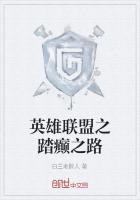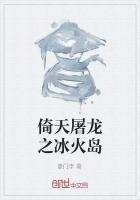If I had begun collecting Napoleonana in my youth I should now have on hand a priceless collection. This reminds me that when Ifirst came to Chicago suburban property along the North Shore could be bought for five hundred dollars an acre which now sells for two hundred dollars a front foot; if I had purchased real estate in that locality when I had the opportunity forty years ago I should be a millionnaire at the present time.
I think I am more regretful of having neglected the Napoleonana than of having missed the real-estate chances, for since my library contains fewer than two hundred volumes relating to Bonaparte and his times I feel that I have been strangely remiss in the pursuit of one of the most interesting and most instructive of bibliomaniac fads. When I behold the remarkable collections of Napoleonana made by certain friends of mine I am filled with conflicting emotions of delight and envy, and Judge Methuen and I are wont to contemplate with regret the opportunities we once had of throwing all these modern collections in the shade.
When I speak of Napoleonana I refer exclusively to literature relating to Napoleon; the term, however, is generally used in a broader sense, and includes every variety of object, from the snuff-boxes used by the emperor at Malmaison to the slippers he wore at St. Helena. My friend, Mr. Redding, of California, has a silver knife and fork that once belonged to Bonaparte, and Mr. Mills, another friend of mine, has the neckerchief which Napoleon wore on the field of Waterloo. In Le Blanc's little treatise upon the art of tying the cravat it is recorded that Napoleon generally wore a black silk cravat, as was remarked at Wagram, Lodi, Marengo and Austerlitz. ``But at Waterloo,'' says Le Blanc, ``it was observed that, contrary to his usual custom, he wore a white handkerchief with a flowing bow, although the day previous he appeared in his black cravat.''
I remember to have seen in the collection of Mr. Melville E.
Stone a finger-ring, which, having been brought by an old French soldier to New Orleans, ultimately found its way to a pawn-shop.
This bauble was of gold, and at two opposite points upon its outer surface appeared a Napoleonic ``N,'' done in black enamel: by pressing upon one of these Ns a secret spring was operated, the top of the ring flew back, and a tiny gold figure of the Little Corporal stood up, to the astonishment and admiration of the beholder.
Another curious Napoleonic souvenir in Mr. Stone's motley collection is a cotton print handkerchief, upon which are recorded scenes from the career of the emperor; the thing must have been of English manufacture, for only an Englishman (inspired by that fear and that hatred of Bonaparte which only Englishmen had) could have devised this atrocious libel. One has to read the literature current in the earlier part of this century in order to get a correct idea of the terror with which Bonaparte filled his enemies, and this literature is so extensive that it seems an impossibility that anything like a complete collection should be got together; to say nothing of the histories, the biographies, the volumes of reminiscence and the books of criticism which the career of the Corsican inspired, there are Napoleon dream-books, Napoleon song-books, Napoleon chap-books, etc., etc., beyond the capability of enumeration.
The English were particularly active in disseminating libels upon Napoleon; they charged him in their books and pamphlets with murder, arson, ******, treason, treachery, cowardice, seduction, hypocrisy, avarice, robbery, ingratitude, and jealousy; they said that he poisoned his sick soldiers, that he was the father of Hortense's child, that he committed the most atrocious cruelties in Egypt and Italy, that he married Barras' discarded mistress, that he was afflicted with a loathsome disease, that he murdered the Duc d'Enghien and officers in his own army of whom he was jealous, that he was criminally intimate with his own sisters--in short, there was no crime, however revolting, with which these calumniators were not hasty to charge the emperor.
This same vindictive hatred was visited also upon all associated with Bonaparte in the conduct of affairs at that time. Murat was ``a brute and a thief''; Josephine, Hortense, Pauline, and Mme.
Letitia were courtesans; Berthier was a shuffling, time-serving lackey and tool; Augereau was a bastard, a spy, a robber, and a murderer; Fouche was the incarnation of every vice; Lucien Bonaparte was a roue and a marplot; Cambaceres was a debauchee;Lannes was a thief, brigand, and a poisoner; Talleyrand and Barras were--well, what evil was told of them has yet to be disproved. But you would gather from contemporaneous English publications that Bonaparte and his associates were veritable fiends from hell sent to scourge civilization. These books are so strangely curious that we find it hard to classify them: we cannot call them history, and they are too truculent to pass for humor; yet they occupy a distinct and important place among Napoleonana.















